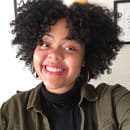During my freshman year, I took an African Diaspora and World-class. Every two weeks we would read different passages by prominent black women and men in history, to discuss the unique ways individuals of African descent experience the world.
Before we dived into the passages for the week, my professor would always incorporate some kind of icebreaker to get us thinking about the topic and the ideas we would be discussing.
During this particular week, the topic was identity, we pulled our desks into a small circle and one by one my professor asked each of us what we identify ourselves with first, being black or being a woman? At the time I attended Spelman College, an all-girls historically black college, so in every class, I was only surrounded by intelligent black women.
We made our way around the circle, and everyone stated that they consider themselves black before being a woman. My professor explained to us that there is no possible way to put half of our identity in front of the rest of our identity because the different “groups” we are a part of make us experience life differently than others.
This lesson of identity was centered on the work and ideas of civil rights advocate Kimberlé Crenshaw and former president of Spelman College, Beverly Daniel Tatum.
Kimberlé Crenshaw coined the term intersectionality. Intersectionality is the idea that being a part of different social groups such as race, gender, class, and sex can result in experiencing multiple oppressions. As a black woman not only do I experience discrimination for being black, but I also experience disadvantages because I am a woman.
In The Complexity of Identity: “Who I Am I?,” Tatum states that everyone is a part of a dominant and subordinate (targeted) group and many of us are a part of multiple targeted groups. Dominant groups are oftentimes the majority, and they hold the power within society, white and men are examples of dominant groups. Being black or being a woman would be considered a subordinate group.
Before reading the works of these two powerful, educated black women I never thought much about how being black alters my experience as a woman. Shortly after being introduced to these concepts I realized that black women in many cases do not experience the privileges that other women experience.
We are not coddled or given the space to cry because we have been characterized as “strong.” In many cases, black women have been treated as if they were disposable, and not as beings who should be treasured and well respected.
Society has decided to let the hue of black women’s skin overshadow the rest of their identity, and by simply choosing to disregard parts of their identity society has chosen to ignore their existence.
No matter how many oppressed groups we are a part of no individual should be forced to emphasize a portion of their identity over the rest of their identity. We are fluid people who cannot be placed into specific categories or boxes just to ensure the comfort of others.



